It starts with a tweet. Then a TikTok. Then your Discord suddenly can’t stop quoting “Gold Ship is cooking.” And next thing you know, you’re knee-deep in anime horse-girl memes trying to figure out if Uma Musume: Pretty Derby is real or just another elaborate internet bit.
Spoiler: it’s very real. And it just galloped into global fame.
With its long-awaited English release on Steam and mobile on June 26, Uma Musume exploded beyond its niche and is now one of the most talked-about gacha games of 2025. But what exactly is this game? Why is it all over your feed? And what does it have to do with actual Japanese horse racing?
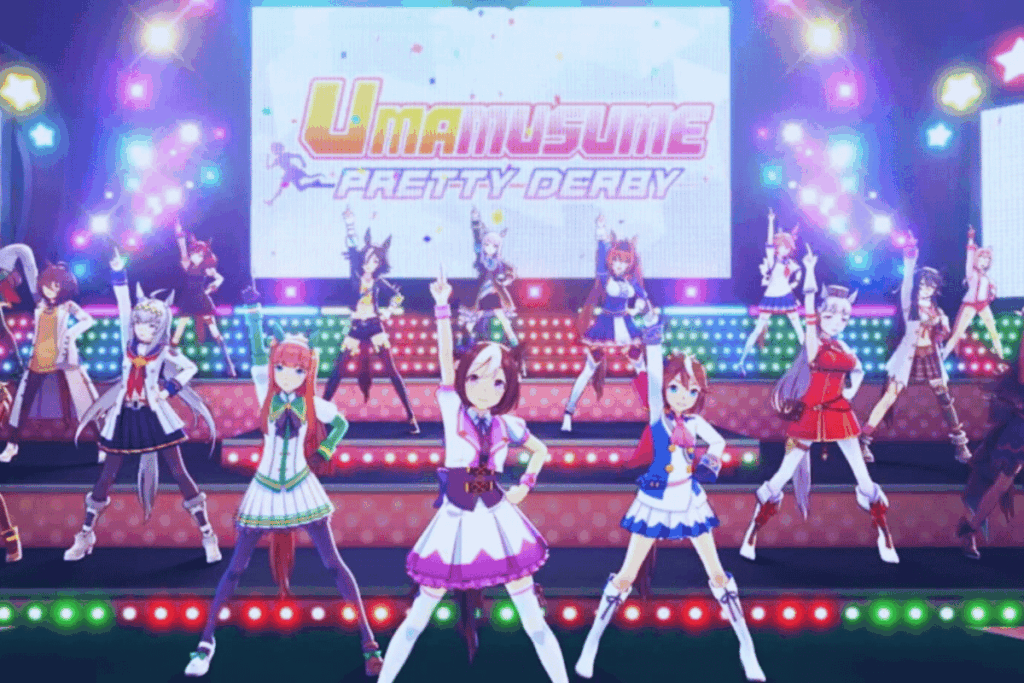
Let’s trot through the wild, fascinating rise of Uma Musume: Pretty Derby.
Want the best connection when training your favorite horse girl? Check out PLDT Home!
From Racetrack to Runway: What Uma Musume Actually Is
At its core, Uma Musume is a mobile/PC game by Cygames where you train horse girls—yes, anime girls who are the reincarnations of real-life Japanese racehorses—to compete in races, level up, and eventually become pop idols.
It sounds bonkers, and it absolutely is. But it’s also incredibly polished, emotionally engaging, and surprisingly deep. Think idol simulator meets roguelike stat training with a bit of strategy RPG thrown in. You’re not just racing them—you’re managing their careers, building friendships, and yes, watching them sing on stage when they win.
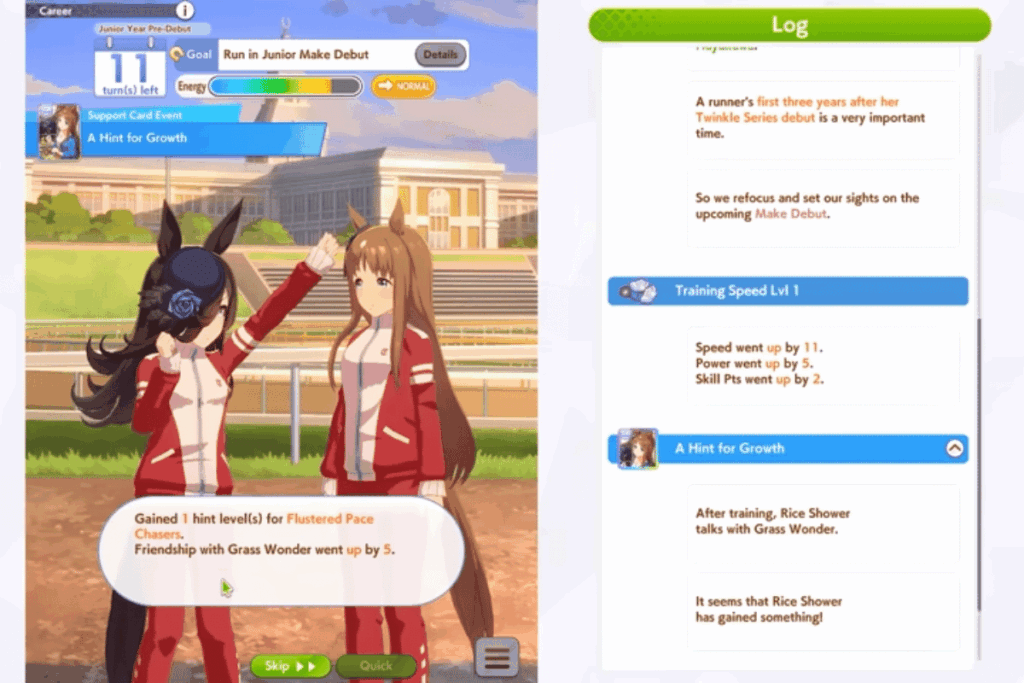
So if you’re wondering why you just saw a clip of an anime girl sprinting a 2,400m race while a crowd cheers, then suddenly performing a concert in a frilly outfit, this is the game responsible.
Wait—They’re Based on Real Horses?
This is what sets Uma Musume apart: every character is based on a real Japanese racehorse. And not just in name—their personalities, storylines, and even racing styles are inspired by actual events.
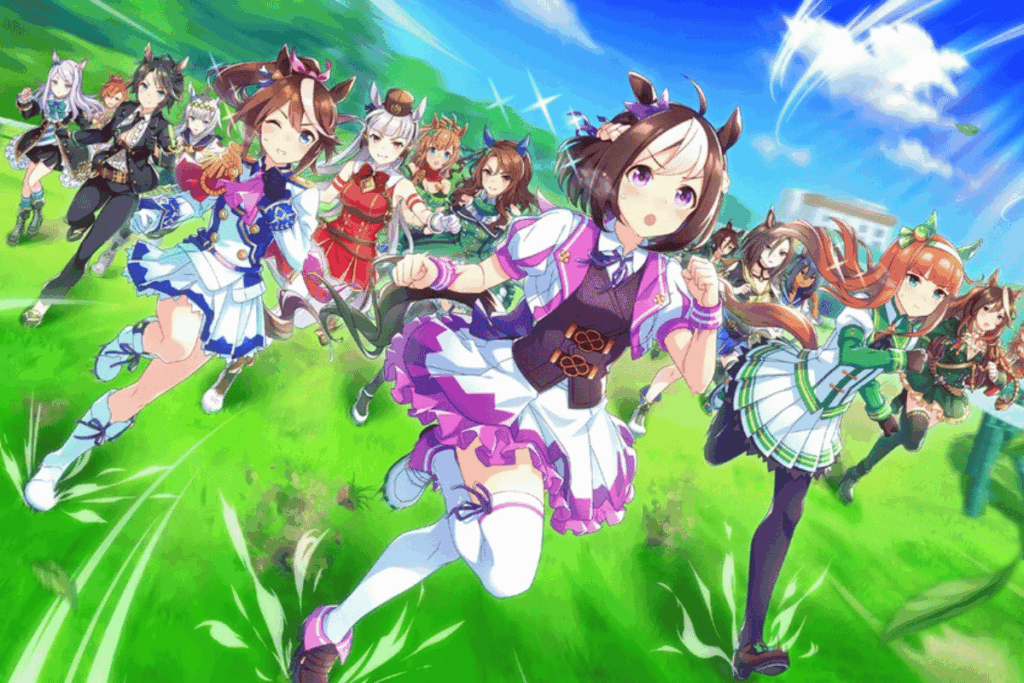
Take Gold Ship, for example. In real life, she was a wildly unpredictable racehorse who once caused billions of yen in betting losses because she’d randomly decide to stop mid-race. In the game, she’s a lovable chaos gremlin who dabs, jokes around, and somehow still pulls off clutch wins.
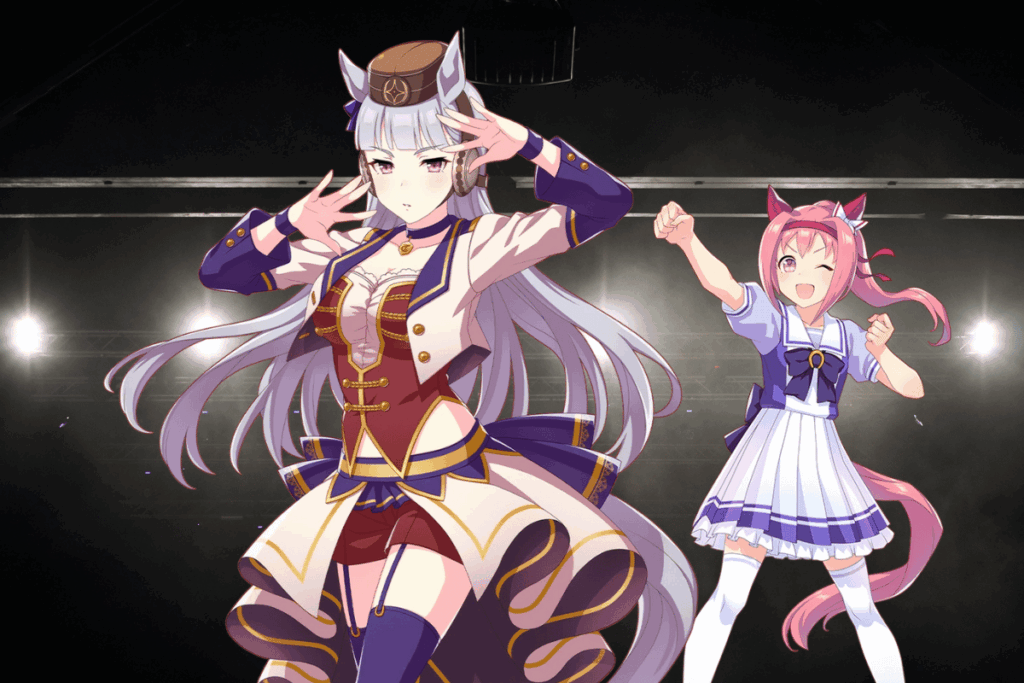
Or Haru Urara, a legendary underdog who lost over 100 races in a row but became a symbol of perseverance in Japan. Her Uma Musume counterpart reflects that charm and underdog spirit, which made her a breakout meme star in the game’s global release.
This connection to real horse-racing lore gives the game an extra emotional weight, especially for Japanese players who grew up watching these horses race. But even if you don’t know the history, the personalities, drama, and rivalries among the girls make it easy to get invested.
How It Blew Up in 2025
The original Japanese version of Uma Musume launched back in 2021 and was already huge in its home country. But it wasn’t until June 26, 2025, that the game saw a proper global English release—and everything changed.
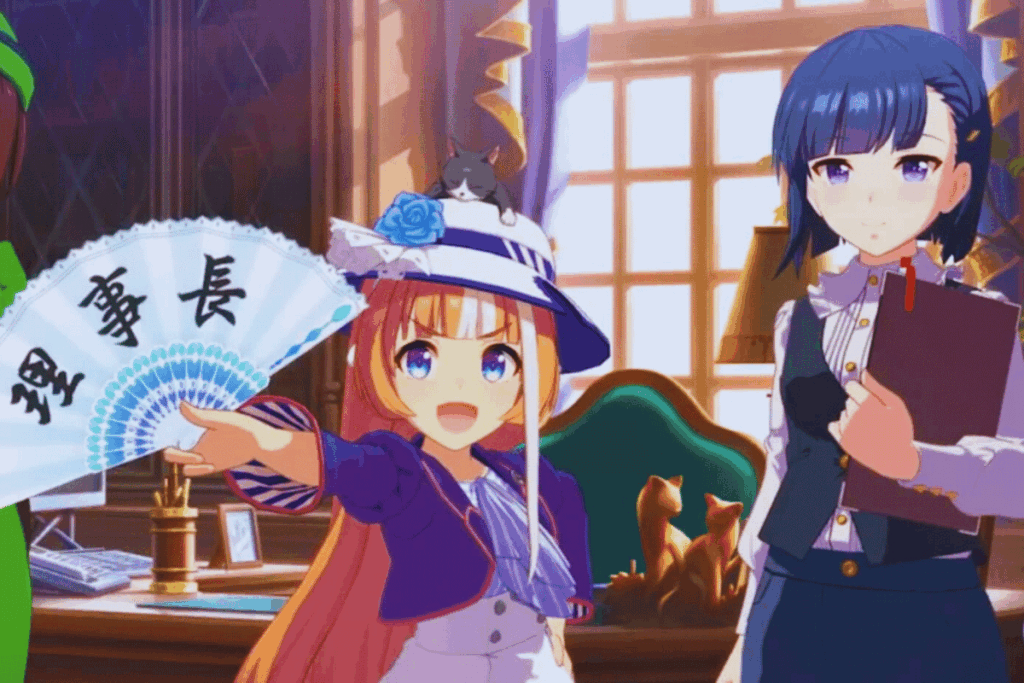
- It quickly entered the Top 50 most-played games on Steam, with over 50,000 concurrent players.
- TikTok exploded with memes, training fails, and idol concert clips.
- Twitch streamers like Northernlion and Ludwig jumped in, helping the game pull in tens of thousands of viewers.
- YouTube Shorts and meme accounts made characters like Gold Ship and Haru Urara into instant stars.
Combine that with the game’s generous drop rates, lovingly animated cutscenes, and the absurd-yet-endearing premise, and it’s no surprise Uma Musume became an instant cultural moment.
What Makes It So Addictive?
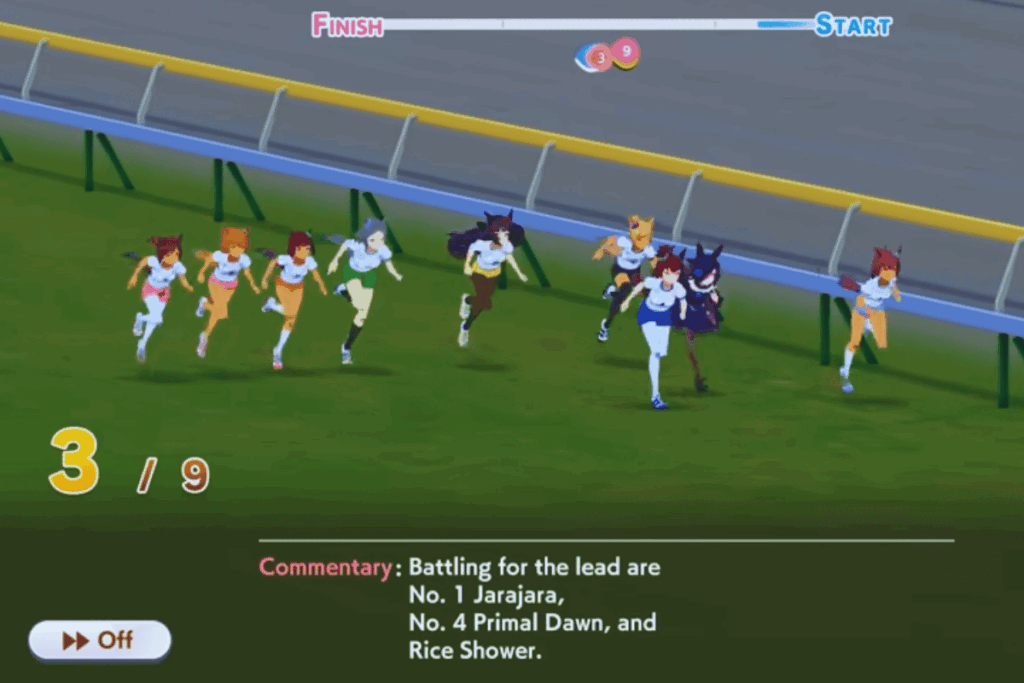
Once you get past the “horse girls” thing (and you will), Uma Musume sinks its teeth in with gameplay that’s equal parts satisfying and chaotic.
1. The Training Loop
You play as a Trainer at Tracen Academy, managing a chosen Uma Musume’s daily training: speed, stamina, rest, recovery, social time, and more. Every decision affects her performance, and once the training arc ends, she enters a racing season that determines her legacy. It’s a full-on roguelike time loop, where every run can go hilariously right or heartbreakingly wrong.
2. Strategic Racing
You don’t just watch races—you customize the strategy. Mid-race, special skills and positioning play a huge role. Watching your carefully trained Uma surge from last to first with a final burst is pure dopamine.
3. Idol Concerts
Win a race, and your Uma performs an actual concert. With unique animations, stage outfits, and songs. It’s part victory lap, part J-pop music video—and it never gets old.
4. Emotional Storylines
Each character has a narrative arc. Some are goofy (Gold Ship’s entire existence), others hit hard (Silence Suzuka’s redemption), and some are based so closely on real-life tragedy that they make fans tear up.
The Memes, The Madness, and the Meta
What started as a niche curiosity is now one of the most recognizable gacha games on the internet. From meme compilations to emotional tribute videos, Uma Musume content is thriving—and it’s not just ironic.
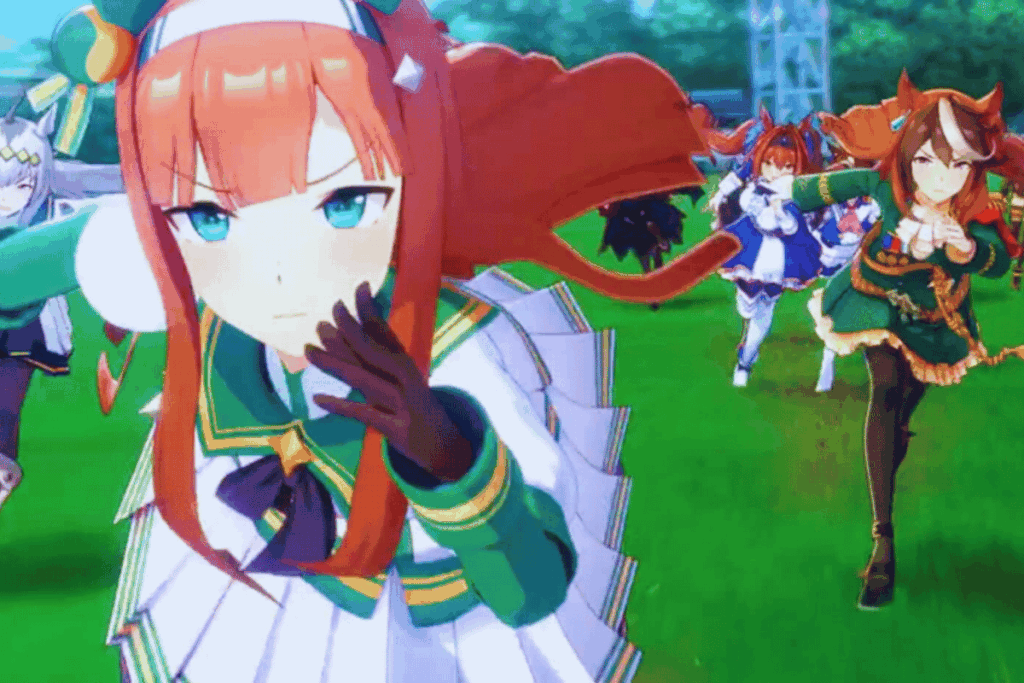
There’s real skill involved in mastering the training systems, optimizing support cards, and picking the right strategy for different track types. It’s a min-maxer’s dream hidden under a layer of glitter and absurdity. And for everyone else? It’s a cozy, chaotic game that somehow gets you emotionally attached to anime horses.
Where You Can Download Uma Musume: Pretty Derby
Ready to train your own racing idol?
- PC (Steam) – Global English release available now
- iOS & Android – Search for Uma Musume: Pretty Derby on App Store or Google Play
- No region lock – You can start playing right away
It’s free-to-play, with optional gacha mechanics for new characters and support cards.
No One Expected the Horse Girls to Win
We’ve seen anime cross over into gaming before, but nothing quite like this. Uma Musume took something incredibly specific—Japanese racehorse history—and turned it into one of the most compelling gacha-sim hybrids on the market. And now, with a global audience behind it, those memes aren’t just for laughs. They’re part of a growing fandom that found heart, hype, and horse girls all in one place. The horses are here to stay.
Read More:
Why Typing “???” Is Gaming’s Ultimate Trash Talk – VRSUS
The Unfair Villainization of Casual Gamers – VRSUS
It’s Not About Money – Why Fighting Game Players Compete – VRSUS





